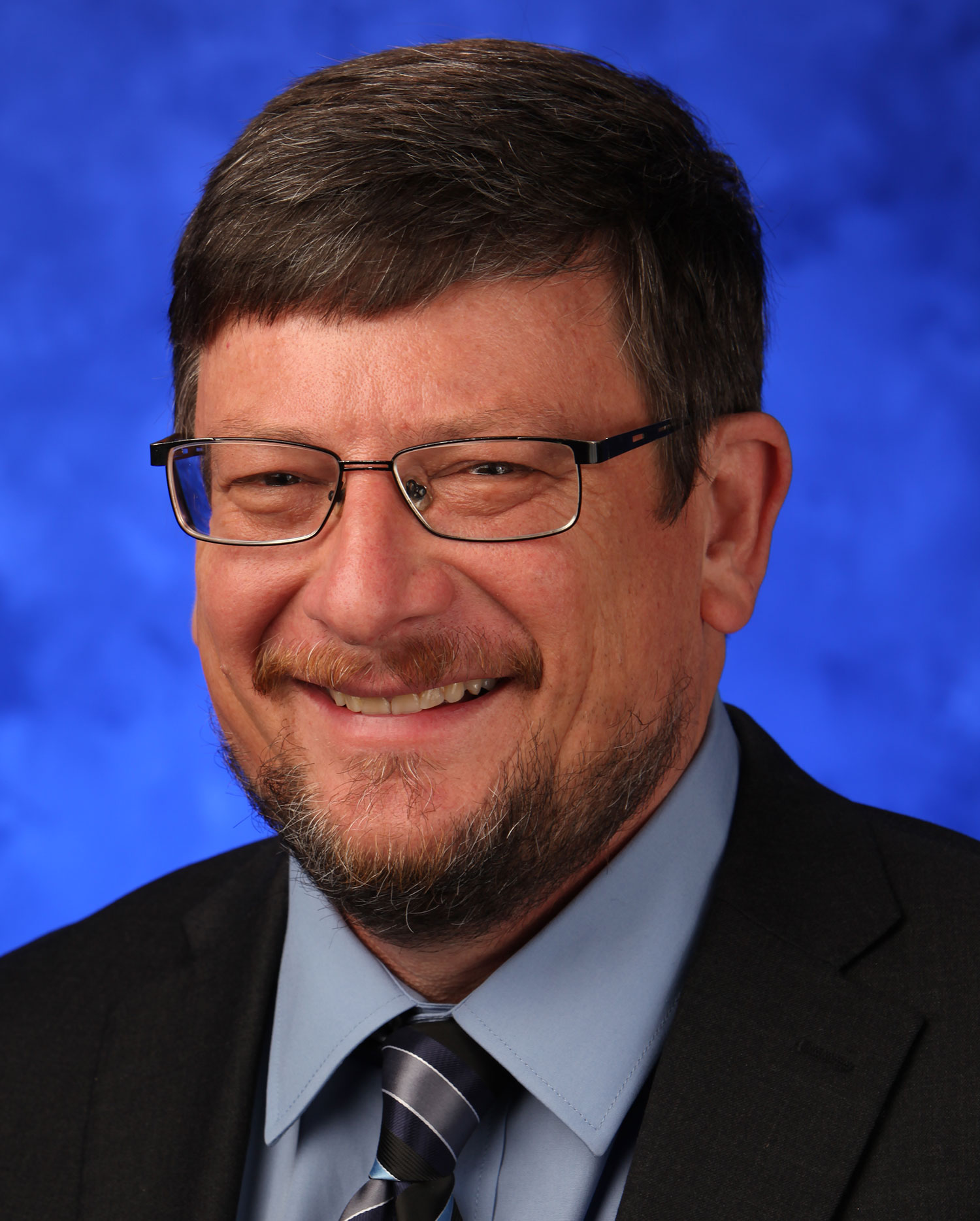New associate dean for research innovation nurtures ideas to the marketplace
Joseph Jilka is in the business of innovation. As Penn State College of Medicine’s newest associate dean for research innovation and director of the Office of Technology Development, his focus is helping faculty bring new technologies from their research labs to the marketplace.
Since joining Penn State Hershey in March, Jilka has been impressed with the culture of innovation he’s experienced here.
“Although I expected it, I still was pleasantly surprised by the open, collaborative atmosphere here,” Jilka said. “Everybody is pulling together, everybody is working together. I can think of three words when I think of what I’ve experienced here so far: open, collegial and collaborative. I’ve been surprised by that — in a good sense of the word.”
With his mix of science and business backgrounds, Jilka brings a wealth of practical experience and multifaceted interests to his role.
After earning a degree in music, he moved to the scientific world and went on to receive his Ph.D. in biochemistry from the University of Illinois at Urbana-Champaign, followed by a post-doctoral opportunity at an agriculture company.
“In hindsight, that experience was fun because I was there when they were first starting to understand the rules for expressing a foreign protein in plants.”
His work led him to a seed company, where an effort looking to use corn as a protein warehouse was spun off into a start-up company.
“There I was, able to go into product development and management of their intellectual property portfolio,” he said.
He also worked with a company trying to do something similar with sugar cane.
“I continued in the area of commercialization at the University of Kansas Medical Center, which led me to an opportunity at Texas A&M System, and then specifically in the Texas A&M Science Center,” he said. ”I worked in all the peripheral edges of commercialization that the more traditional tech transfer offices don’t have time for, like new company formation and promoting innovation.
“It’s exciting at Penn State College of Medicine because it’s a lot of what I was trying to do at the A&M Health Science Center, but it is orders-of-magnitude higher.”
What Jilka is trying to do is help new medications or therapies make it to patients by protecting intellectual property that is produced through research at the College of Medicine.
“New therapies, new drugs or new devices can take tens of millions if not hundreds of millions of dollars to reach the market, and anywhere from five to 10 years before they reach the patient,” he said. “We have to makes sure that ideas are properly protected, because how do you get a company to justify putting a $100 million into a new drug if everybody could do it? If everybody can do it, nobody would do it because you can’t protect the market.”
Patents are issued that give, for example, a 20-year exclusivity on a drug, which helps companies recoup invested money.
“We have to properly nurture the idea and protect the idea so that it can be handed off downstream to a start-up company or a large company to move it further. We’re about nurturing ideas so that they can reach the market.”
One aspect of Penn State Hershey that excites Jilka is its role as a teaching hospital.
“To me, it’s exciting that when you walk down the hallway and you step across the threshold, you’re in the hospital; you’re in that active clinical setting,” he said. “I know it’s somewhat of a cliché to say it, but I believe true innovation lies with the people that are in the trenches – in this case the clinicians – and they see what needs to happen for patients.”
Some technology, Jilka said, is created in search of a market. Finding solutions is important, but they must be solutions that are needed in the marketplace.
“When you work with somebody in the trenches, they come up with the things that usually have immediate market needs,” he said. ““I have always enjoyed being on the line between industry and academia and being able to go across the border and help faculty. In order to bring an idea to the marketplace, we need to understand facets like what’s the market for it, what’s the clinical relevance of it? My goal is to educate faculty and instill a framework of those other facets.”
Helping achieve that goal is a strong relationship with the Office of Technology Management at the University, which provides a licensing officer to Penn State Hershey to handle many of the intellectual property-related tasks. Many of these tasks include coordination of patent filings and the negotiation and execution of licenses. That frees Jilka and his office up to develop and maintain important community relationships like state government, Ben Franklin Technology Partners, Life Sciences Greenhouse of Central PA and Pennsylvania Bio.
While creating a culture of innovation can lead to increased research funding and opportunities, Jilka said the main reason its important is in the fabric of Penn State Hershey.
“At the end of the day we’re all about saving lives,” he said. “To me, that’s the 30,000 foot view of our office. There are a lot of good ideas out there, but unless they’re protected and nurtured, they won’t go anywhere. Success will come by seeing new therapies and new medicines on their way to the patients who need them.”
If you're having trouble accessing this content, or would like it in another format, please email the Penn State College of Medicine web department.

